Text
I asked Google Bard to give me a specific situation in which a creole betwen Chinese, Korean, and English might form. So far, so good:

BUT THEN
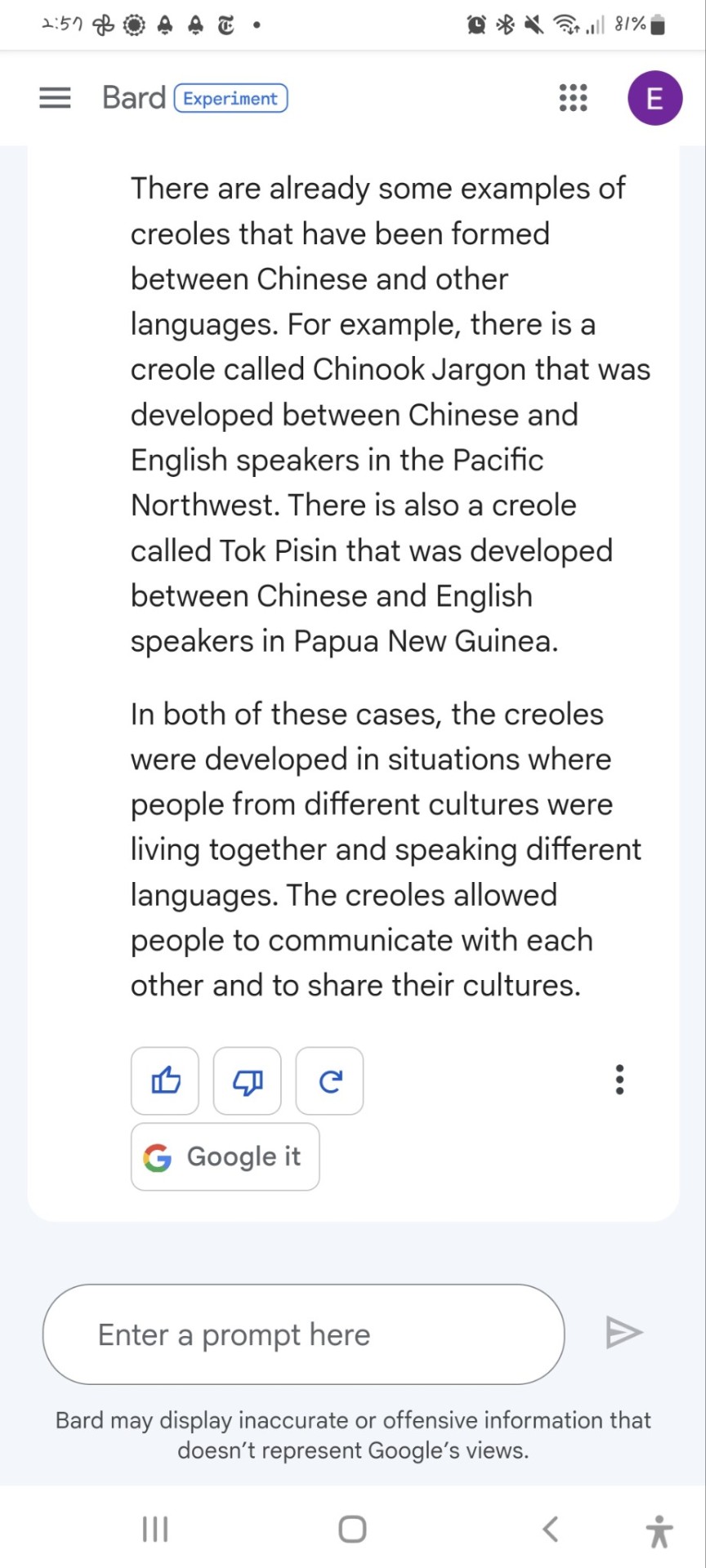
LIES
Chinook Jargon is a creole formed mainly between the Chinook language and French, with some words from English and various indigenous languages of the Pacific Northwest
Tok Pisin is a creole formed between various Melanesian languages, English, German, Malay, and Portuguese
Neither of these have significant Chinese influences so ???
30 notes
·
View notes
Text

Reminder that capitalism is the death of art
59K notes
·
View notes
Text
when did tumblr collectively decide not to use punctuation like when did this happen why is this a thing
718K notes
·
View notes
Text
One of the first books I read in English as a kid, maybe 1 year after I started learning English, was a booklet with a title like, How to Have a Great Time at Summer Camp. I don’t remember the exact title and I know I only picked it up because the other books in English in my school’s library looked way beyond my level, stuff like Austen and Dickens. The summer camp booklet didn’t look too interesting but it was small with simple sentences. I ended up being fascinated with it because it was the most American thing I had ever got my hands on and it felt impossibly exotic
all the kids had cool American names like Jill and Mike. One of them at one point talked about the “chipmunks” in the woods near the camp, a mysterious word that didn’t exist in my tiny English dictionary, and for some reason I pictured them as scrawny wolves. I had read Little House on the Prairie so I knew wolves were a major concern for Americans
camp “counsellors” were often mentioned, and my pocket English dictionary only defined that word as “psychologue”. I thought it was weird how American summer camps had dozens of psychologists roaming the premises, one for every 5 to 10 kids. That felt like a lot of psychologists
I had no idea that the word “pet” could mean “favourite”. When the booklet said one kid might become “the camp counsellor’s pet”, my dictionary helpfully led me to believe it meant that a psychologist would pick one unfortunate kid to be his domestic animal for the summer. Slightly disturbing. I moved on
the kids slept in “bunks” and my stupid dictionary only defined this word as “couche”. Which is not wrong, but we would probably say couchette instead, or better yet lits superposés, and couche is also our word for diaper so you can see why I continued being deeply intrigued by every new detail I learnt in this booklet. American kids are excited about camp because they get to sleep in diapers
I had never encountered the word “baseball” before but managed to guess it was some kind of sport, but when the booklet mentioned the “baseball diamond” (in the context of a kid saying the baseball diamond was big) I of course assumed it was an actual diamond that you could win if you won a game of baseball at camp. For some reason I had a debate with a classmate over the plausibility of this. I say for some reason because I didn’t really question the diapers or the wolves or the psychologists with their human pets. A diamond though? Doubt. I just remember that we were queueing up for lunch and I was like “What do you think?” and my friend said hesitantly, “Maybe if it’s a small diamond?” and I insisted “No! The book says it’s big!”
among the basic items the book said every kid should bring to camp were “batteries”. I didn’t bother looking up that word in my dictionary seeing as it’s the same in French. I didn’t know it was a false friend, and I was impressed to learn that most American kids own a drum set and bring it to camp as an essential item
on the same page, in the list of things every kid should put in their suitcase for summer camp, another item was “comic books”. I wasn’t sure what those were since in French we call them BD, but basing myself on the word “comic” I assumed they were books of jokes and puns. I loved learning that in the US all kids bring humour anthologies to summer camp, presumably because they worry about running out of funny things to say. I thought American kids sounded nervous and sweet. But also really cool, because of all the drums
88K notes
·
View notes
Text
It would be funny if nuclear waste warning messages become an attraction for future historical linguists.
I mean look at this thing:

A parallel text in 7 languages, with 4 different scripts between them! And pictograms! All designed to be preserved intact!
34K notes
·
View notes
Text
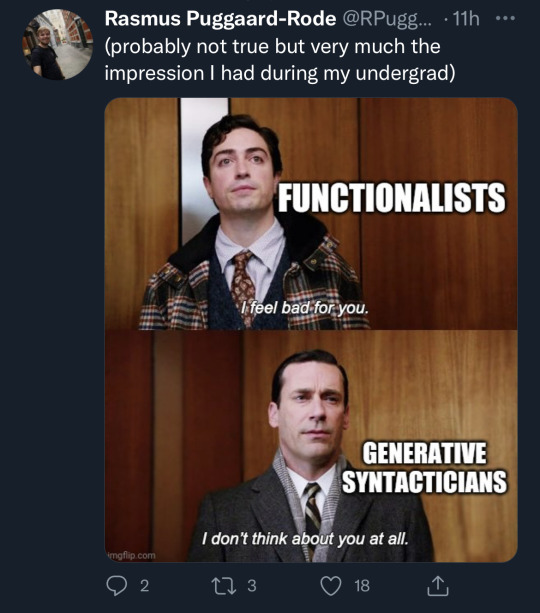
Source
123 notes
·
View notes
Text
in an interesting case of linguistic convergent evolution, the english words scale, scale, and scale are all false cognates of each other
93K notes
·
View notes
Text
Our Japanese class found it funny that in common terminology "food" isn't very distinguished from specifically "rice" until it was pointed out to us that in English "meal" is "loose roughly ground grain"
143K notes
·
View notes
Text
one of my favourite linguistic phenomena/in-jokes is spanish potato chips being “ham-flavored, probably”
229K notes
·
View notes
Text
Every family has their own language.
There are so many implications and questions inherent in this prompt. Go explore them. Go!
70 notes
·
View notes
Text
전라도 사투리 / Jeolla-do Dialect
if anyone is interested in learning 전라도 사투리 here's what we went over in class today. i didn't have time to translate it all into English bc the teacher was talking so fast 😅
1. 거시기 (있다, 하다) - thingamajig
2. 내 기분이 쪼까 거시기 하다 - 기분이 조금 안 좋다
3. 오메 - 어머, 와
4. 아따 - come on/ srsly/ ugh/ 아이고
5. 시방 - 지금
6. 귄있다 - 볼수록 매력이 있다 (to grow on you)
7. 되다 (아따~ 된그~) - 힘들다/ 피곤하다
8. 긍께 (그렁께) - 그러니까
9. 올텡께 - 올 테니까
10. 암시롱 않다 - 아무렇지도 않다
11. 허벌라게 (허버) - 아주/ 굉장히
12. 뒤지다 - 죽다
13. 디지게 - 죽을 만큼 (죽겠다)
14. 오지다 - satisfied/ content
15. 쪼까 - 조금
16. 어찌야쓰까잉/ 어찌까잉 - 어떻게 하지?
17. 짠하다 - 불쌍해서 마음이 아프다
18. 야물다 - 똑똑하다
19. ~디 - ~데 (근데 -> 근디)
20. ~냐 - question
21. ~잉 - (not sure yet, maybe just an extra bit added onto the end of the sentence, but could be similar to ~지요. can anyone fill in?)
22. ~부러 - 버려 (버리다)
23. 했당께 - 했다니까
24. 아따 안 오고 뭐더냐 - 아이고 안 오고 뭐 하냐
25. 디지게 피곤해부러 - 피곤해 죽겠다
27 notes
·
View notes
Text
gonna post a controversial take alright are y’all ready??
…
actually typing out emoticons like XD and :D and :V never should have gone out of fashion and you can pry them out of my cold dead hands okay I know emojis are fun but THEY DON’T CAPTURE THE EMOTION IN THE SAME WAY
so like
…yeah that was basically it, thanks for reading
165K notes
·
View notes
Photo
Check out IPA Braille as well! Fun fact: you can always find it in a Wikipedia article for each sound on the IPA chart :)
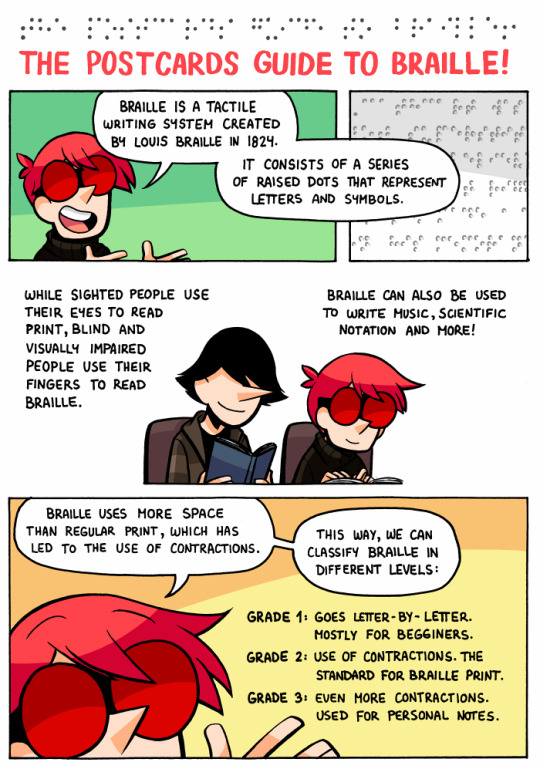
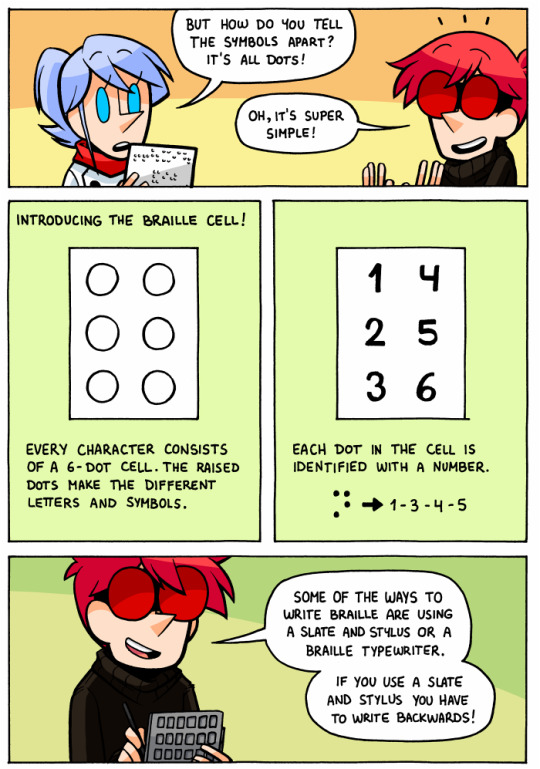
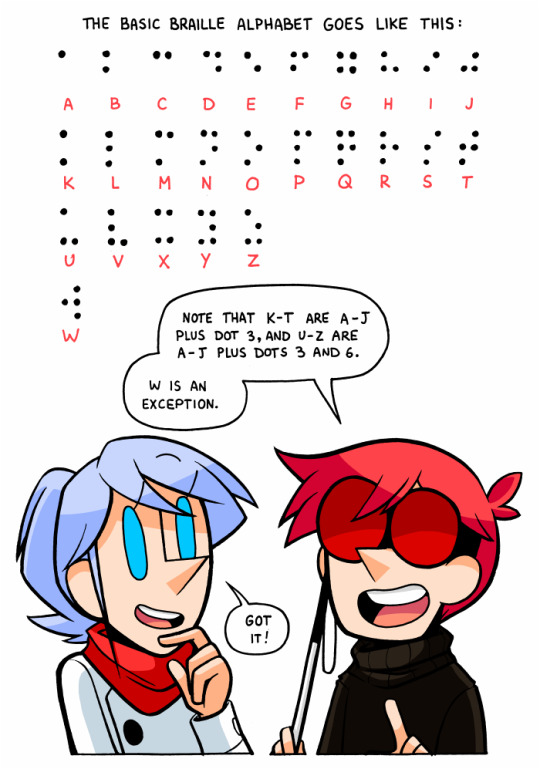
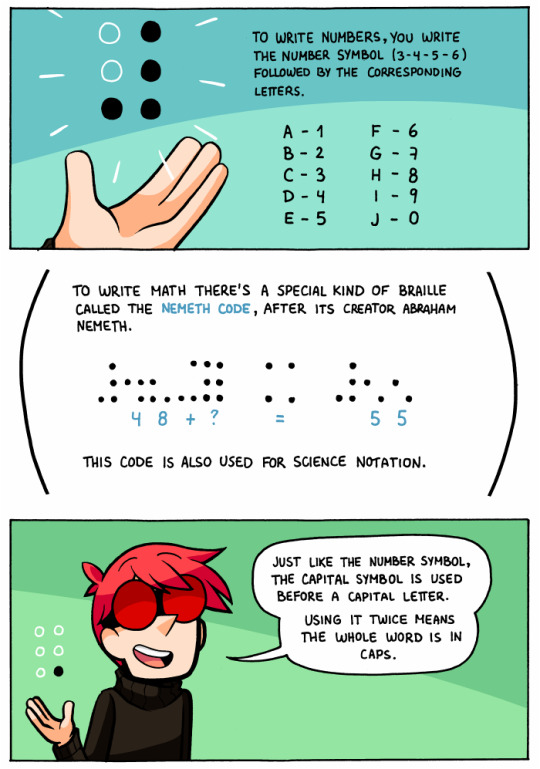
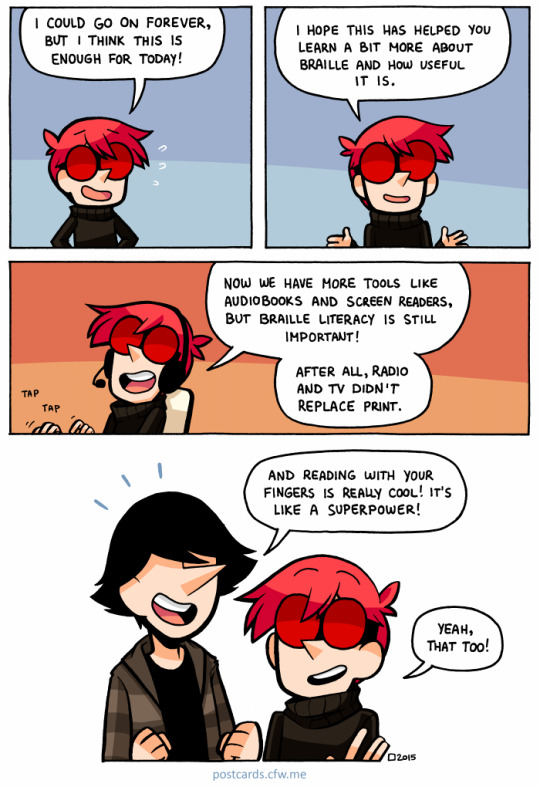
This is part of my webcomic Postcards in Braille, which you can read on ComicFury or Tapastic. Updates on Mondays!
This comic/guide works well enough on its own, so I thought it’d be nice to post it here as well :D Braille is really cool and you don’t need to be blind or visually impaired to learn it - and spreading the use of Braille can help us build a more inclusive society! everyone wins!
Bonus fun fact: Braille is originally based on Night writing (or sonography), a tactile reading/writing system created for soldiers to communicate silently at night. Louis Braille adapted it into easier to read cells, creating the Braille system. Good to know it evolved into something so useful!
79K notes
·
View notes



